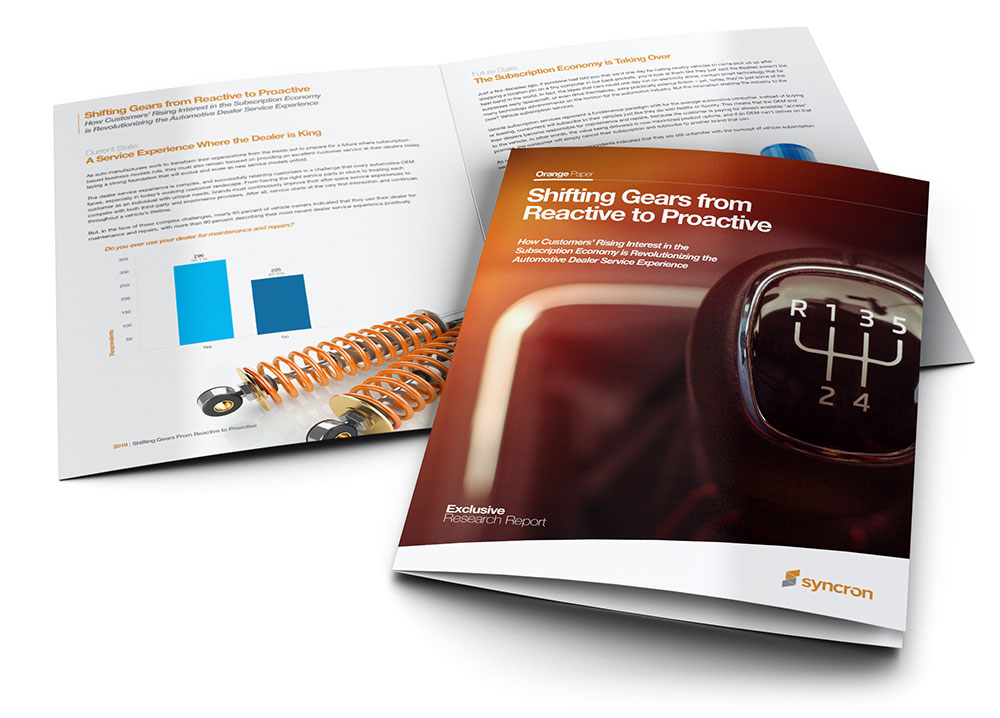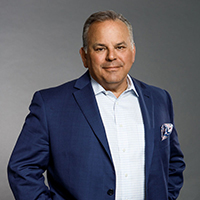
June 5, 2019
By Gary Brooks, CMO, Syncron
Vehicle subscriptions – where customers pay a flat monthly fee to a manufacturer or third-party provider in return for on-demand access to several vehicle models – have started cropping up from brands like Volvo, Mercedes and others as an alternative to traditional purchasing or leasing. The fee covers insurance, maintenance and roadside assistance and can be turned off or on at the click of a button.
This is clearly a disruptive period for the automotive industry, so what are customers’ expectations not only today, but in the future? At Syncron, we recently conducted research to figure out just that. Here’s a closer look at what we found:
Vehicle subscriptions are one of the biggest disruptions in the automotive industry’s decades-long history, and these changes in mobility are rapidly moving customer expectations.
More than 60 percent of survey respondents indicated that they are unfamiliar with vehicle subscriptions, however, 57 percent were very interested when presented with the concept. Additionally, 60 percent of respondents indicated fixed monthly cost and included maintenance and repairs as the biggest advantages of vehicle subscription services. More than 40 percent also indicated that they would be willing to pay a premium price for a subscription-based model.
Dealers are a key component of today’s automotive industry infrastructure and will remain so in the future, but in a different manner. As the industry continues to evolve to a more subscription-centered focus, dealers will essentially become fleet managers. And OEMs must begin equipping their dealers today for this future shift.
The good news is that, per our study, a majority of customers are satisfied with the dealer experience as it stands today. Nearly 60 percent of vehicle owners indicated that they use their dealer for maintenance and repairs today. In addition, more than 90 percent describe their most recent dealer service experience positively. This bodes well for the future, even if changes need to be made at the dealer level to cope with future changes.
Despite the fact that customers are generally content with the current dealer experience, OEMs cannot afford to sit back. More than half of survey respondents lack loyalty to a particular automotive brand when making final vehicle purchasing decisions. And, with nearly 40 percent of these vehicle owners indicating that a negative dealer service experience would sway their perception of a brand, the customer experience at the dealer level is more important than ever. Therefore, OEMs and dealerships must be attuned to changes in customer expectations and continuously adopt new processes, technologies and resources to meet or exceed them.
The automotive industry is one of the most rapidly changing spaces in the manufacturing space. OEMs must be wary of missing out on opportunities and need to be open to change if they want to succeed moving forward.
 About the Author
About the Author
As Chief Marketing Officer at Syncron, Gary Brooks is responsible for global marketing and focuses on enabling leading manufacturers around the world transform their after-sales service operations to maximize product uptime.
Scott Ellyson, CEO of East West Manufacturing, brings decades of global manufacturing and supply chain leadership to the conversation. In this episode, he shares practical insights on scaling operations, navigating complexity, and building resilient manufacturing networks in an increasingly connected world.